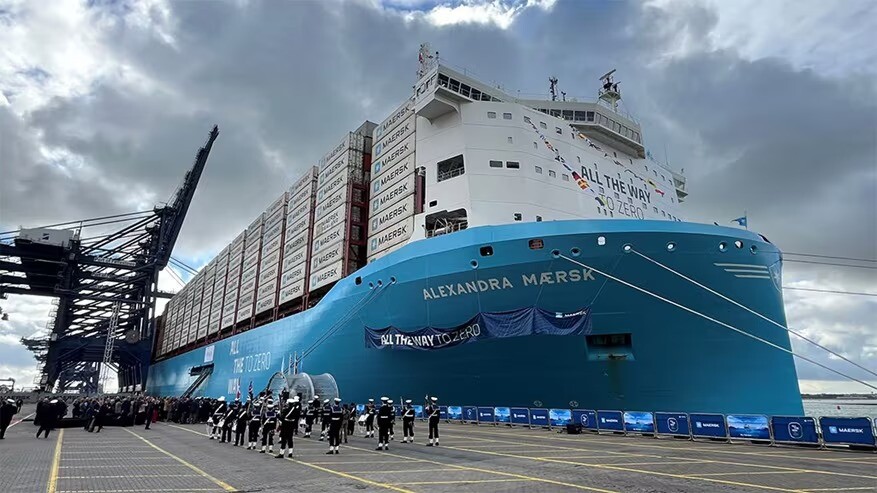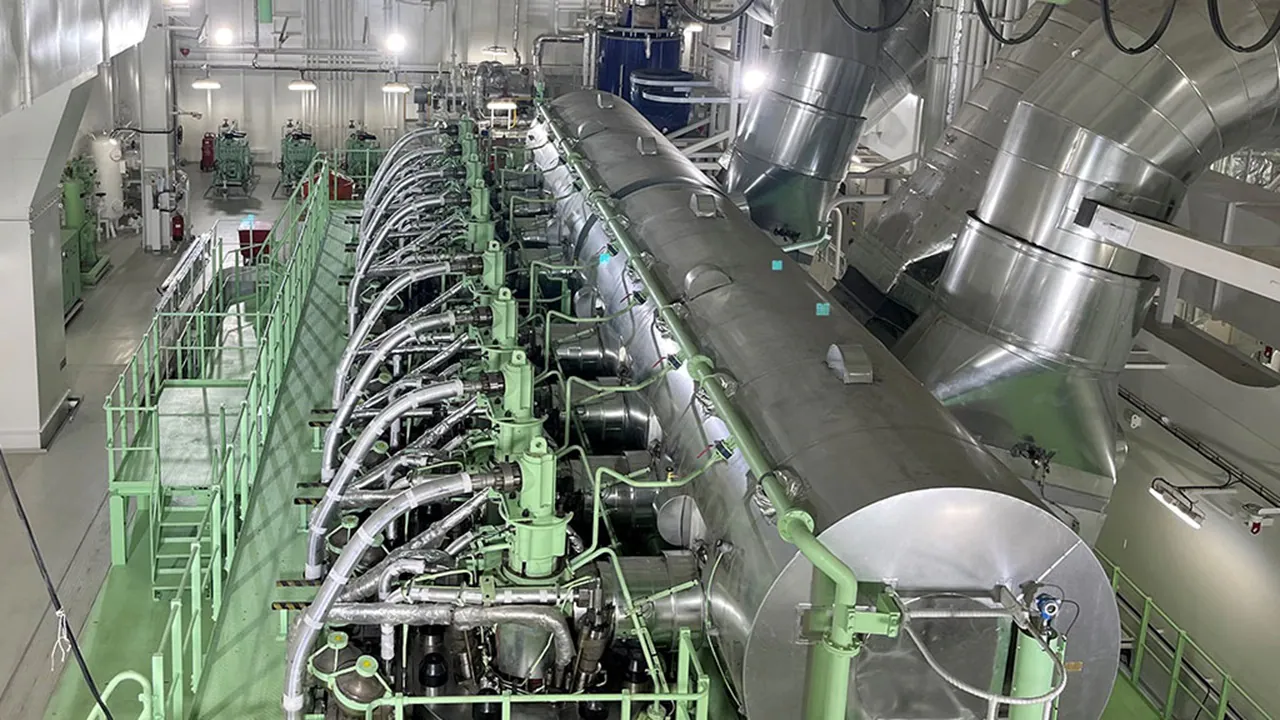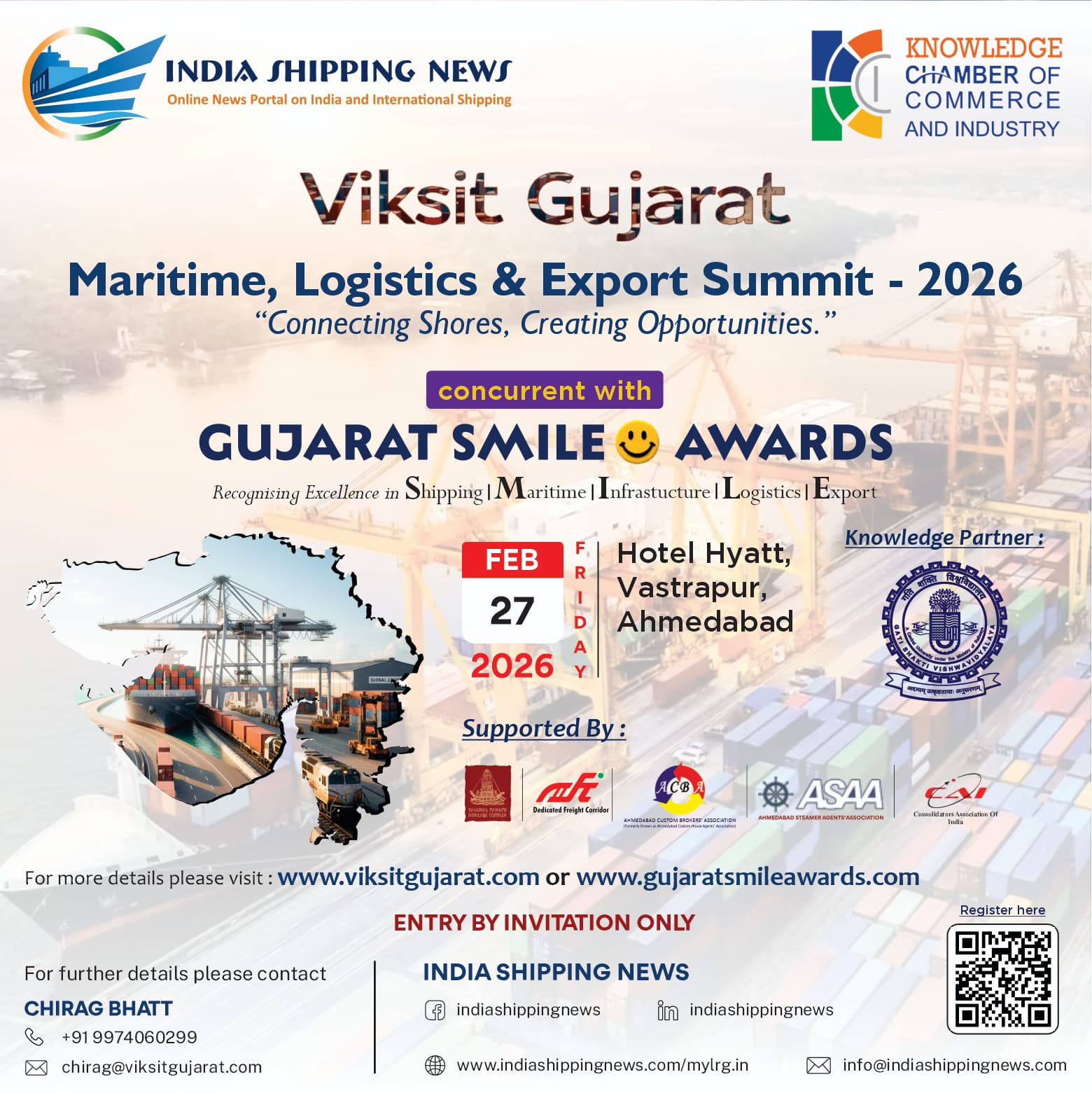
Maersk names latest vessel of its dual-fuel methanol fleet “Alexandra Mærsk” in Felixstowe
FELIXTOWE : A.P. Moller – Maersk has celebrated the naming of its latest dual-fuel methanol container vessel “Alexandra Maersk”. UK’s Maritime Minister Mike Kane, representatives of the IMO, customers and Maersk employees joined the festive event at the Port of Felixstowe, UK. Elaine Condon, Director of People & Culture at Primark, is the godmother of the ship, representing the close logistics and sustainability partnership between Maersk and its customer Primark.
“Alexandra Maersk” is the sixth vessel in Maersk’s owned fleet being able to sail on methanol in its main and auxiliary engines. It is the fifth ship in a series of 18 large dual-fuel methanol vessels scheduled for delivery in 2024 and 2025. Each can carry more than 16,000 standard containers (TEU).
It’s a privilege to join the naming ceremony for the ‘Alexandra Maersk’ – one of the first container vessels to run on green methanol. This is exactly the kind of innovation we need to deliver a greener, cleaner maritime sector which is better for people and for our planet. Delivering greener transport is one of our top priorities and we will do so by reducing harmful greenhouse gas emissions and investing in alternative fuels and technologies.
Mike Kane
UK’s Maritime Minister
We are committed to reducing the impact we have on the environment across our entire operation, including our supply chain. Through our partnership with Maersk we have started to introduce green fuel alternatives, such as Biofuel, when shipping our products. By using Maersk’s ECO Delivery Ocean product and replacing fossil fuels with green fuel alternatives on Maersk’s cargo ships, we are reducing greenhouse gas (GHG) emissions in our ocean shipping. This is a really important step for us at Primark as it supports our ambition to halve our carbon emissions across our value chain by 2030.
Paul Marchant
CEO of Primark
Maersk’s ECO Delivery Ocean is based on reduced GHG emission fuels like bio-diesel which is used on vessels across the Maersk fleet, and now also green methanol which our newest vessels like “Alexandra Maersk” are capable of sailing on.
It’s great to see customers like Primark taking action and partner with us to decarbonise ocean transport. True progress in the green transformation requires collective effort. To accelerate the transformation, we need the International Maritime Organization help closing the price gap between green and fossil fuels to make the green choice the best choice for all. Last weeks IMO meeting on that matter was a step in the right direction, but much work remains in the coming months. We remain hopeful and continue to do all in our power to progress the green transition of shipping.
The new methanol enabled ships are at the core of Maersk’s ambitious decarbonisation plans as low emission methanol can reduce the greenhouse gas (GHG) emissions by 65% to 90% compared to conventional fossil fuels such as bunker oil (depending on the feedstock and production process of the methanol, calculated on a life cycle basis).*
Following the tradition of naming Maersk vessels after members of the founding family, “Alexandra Maersk” is named after Alexandra Mærsk-Møller (1868-1953) who was an older sister of Mr. A.P. Møller, the founder of A.P. Moller – Maersk.
* Maersk has set itself ambitious goals for decarbonising logistics on ocean and across its whole business with a net-zero target in 2040. The pathway to net-zero has been tested and approved by the Science Target Based initiative (STBi). Reduced GHG emission fuels are key to achieving the target. The exact emission reduction of green methanol depends on the production process and how feedstock and produced methanol is being transported. While methanol made from biogenic feedstock reaches around 65-70% GHG emission reduction on a life cycle basis compared to conventional fossil fuel, the synthetically produced green methanol, the so called e-methanol, aims to reach much higher levels of GHG emission savings of up to 90% on a life cycle basis.

About Primark
Primark is an international fashion retailer employing more than 80,000 colleagues across 17 countries in Europe and the US. Founded in Ireland in 1969 under the Penneys brand, Primark aims to provide affordable choices for everyone, from great quality everyday essentials to stand-out style across women’s, men’s and kids, as well as beauty, homeware and accessories. With a focus on creating great retail experiences, Primark has over 440 stores globally and continues to expand.
Primark is working to make more sustainable fashion affordable for everyone through its Primark Cares strategy, a multi-year programme that focuses on giving clothing a longer life, protecting life on the planet and supporting the livelihoods of the people who make Primark clothes. As part of this, Primark unveiled nine commitments it is working to achieve by 2030. These commitments include making all of its clothes from recycled or more sustainably sourced materials by 2030, halving carbon emissions across its value chain and pursuing a living wage for workers in its supply chain. More information can be found here.
About Maersk
A.P. Moller – Maersk is an integrated logistics company working to connect and simplify its customers’ supply chains. As a global leader in logistics services, the company operates in more than 130 countries and employs around 100,000 people. Maersk is aiming to reach net zero emissions by 2040 across the entire business with new technologies, new vessels, and low-emission fuels.

